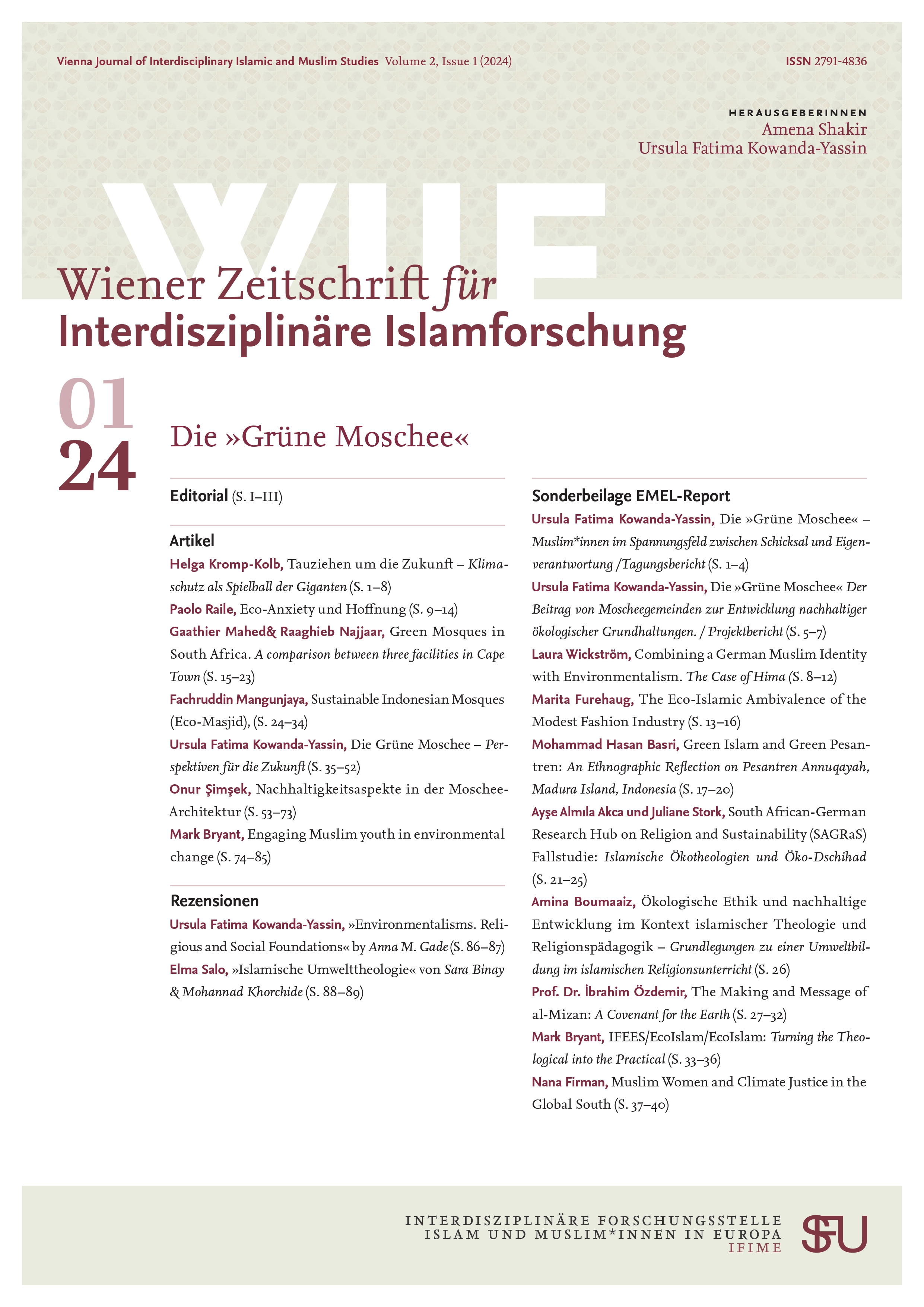Green Islam and Green Pesantren
An Ethnographic Reflection on Pesantren “Annuqayah”, Madura Island, Indonesia
DOI:
https://doi.org/10.34809/2024.01.17-20Schlagwörter:
religion and ecology, green Islam, green pesantren, Pesantren “Annuqayah”Abstract
This article presents a new trend of ‘green Islam’ in the Indonesian Islamic community specifically in Islamic education (eco-Pesantren) (Arnez 2004, Gelling 2009, Gade 2019). It will elaborate my ethnographic reflection on the case study of my PhD fieldwork in Pesantren “Annuqayah”, an Islamic boarding school that won recognition for its nature conservation efforts via a Presidential prize (Kalpataru 1981). I identify that its green vision is deeply rooted in Islamic teachings, providing the theological, philosophical, and ethical foundations that the Pesantren translates and transforms into green initiatives through the educational system and community engagement with local people. I argue that local efforts – such as those which have been developing in Pesantren “Annuqayah” and other green Pesantren in Indonesia – could contribute to and build collaborative actions for the future of sustainable development.
